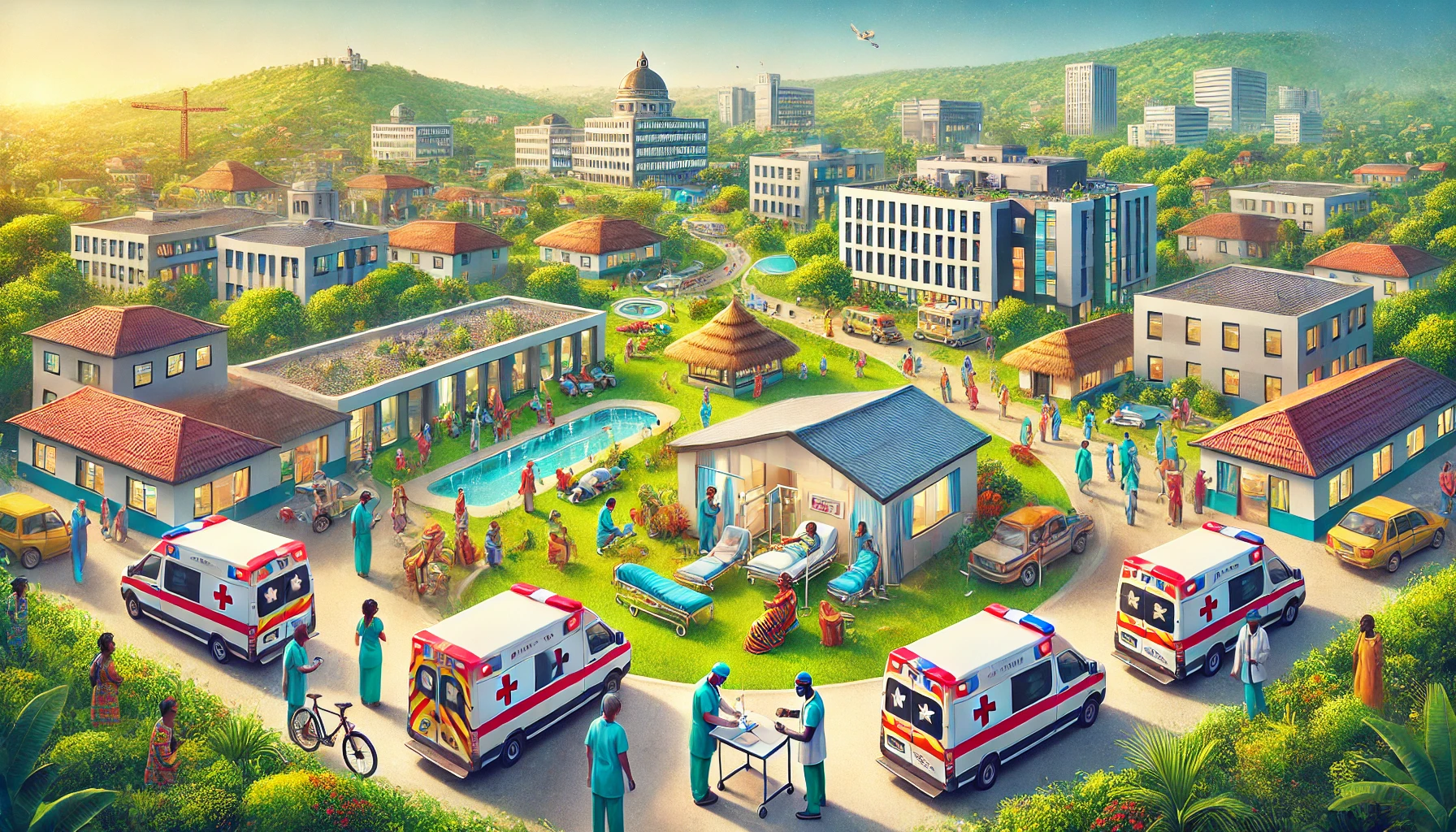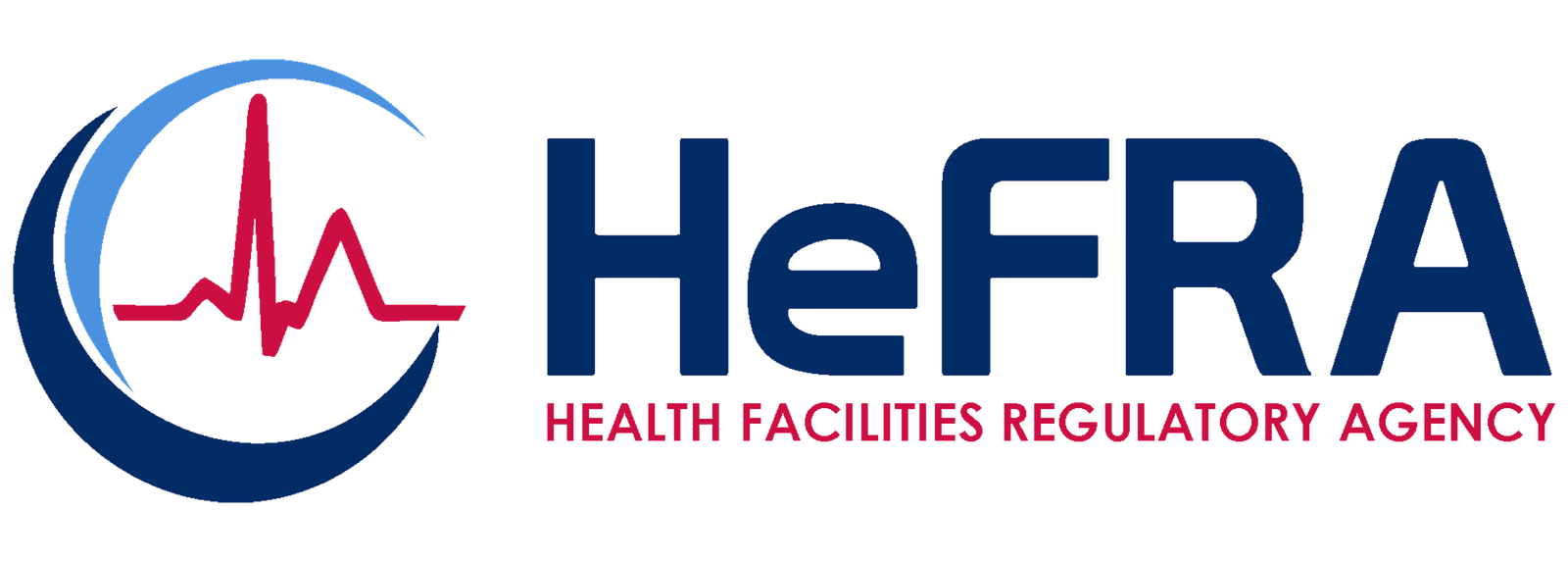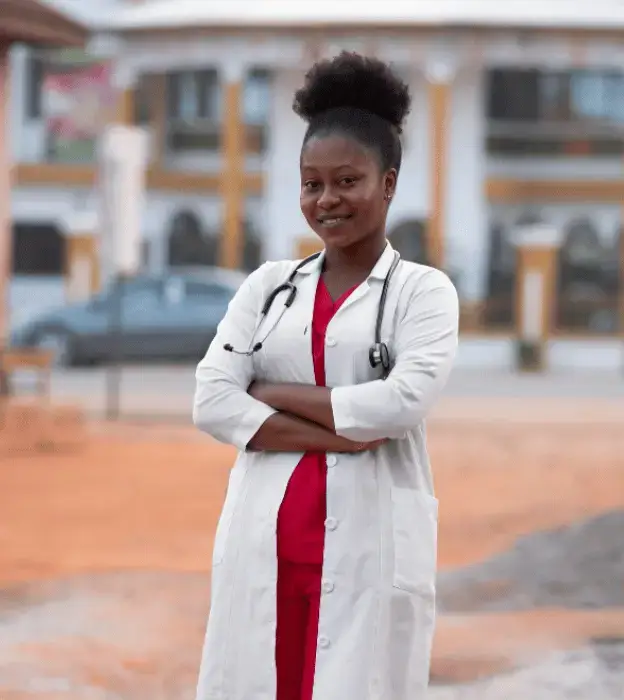
🏥👨⚕️🩺 Public and Private Hospitals In Ghana – Part 1
Below is a comprehensive article about hospitals in Ghana, arranged by region and complemented with essential details such as founding dates, approximate numbers of health professionals, services offered, popular perceptions, and locations. Because there are hundreds of hospitals across the country, this article focuses on some major or well-known facilities in each region. In addition, you will find a Frequently Asked Questions (FAQ) section at the end, addressing many common queries about hospitals.
1. Introduction
Ghana’s healthcare system is a blend of public, private, mission-based, and teaching hospitals. Public hospitals fall under the Ghana Health Service (GHS) or are teaching facilities affiliated with the Ministry of Health. Private hospitals range from large, sophisticated centers in urban areas to smaller community clinics. Mission-based hospitals are often run by religious or charitable organizations, playing a crucial role in remote and underserved communities.
Key points about Ghana’s hospital landscape:
1.1 Three main teaching hospitals:
- Korle Bu Teaching Hospital in Accra (Greater Accra Region)
- Komfo Anokye Teaching Hospital in Kumasi (Ashanti Region)
- Tamale Teaching Hospital in Tamale (Northern Region)
1.2 Emerging teaching hospitals in Cape Coast (Central Region) and Ho (Volta Region).
1.3 Regional and district hospitals that serve as referral centers across Ghana’s 16 regions.
1.4 Specialized private hospitals offering services like fertility treatments, orthopedic surgeries, cosmetic procedures, and advanced diagnostics.
Images are only illustrative; may not pass an academic critique
2. Hospitals by Region
Below is an overview of notable hospitals in Ghana, organized by region. Each entry includes (where information is publicly known) approximate founding dates, staff strength, location, and types of services.
Disclaimer: The numbers of staff, beds, and founding years are sometimes approximate or subject to change.
2.1 Greater Accra Region
Korle Bu Teaching Hospital (KBTH)
- Founded: 1923 by Sir Gordon Guggisberg
- Location: Korle Bu, Accra
- Approx. Number of Health Professionals: Over 1,500 doctors and 4,000 nurses/support staff
- Services: Teaching and research, general medicine, surgery, maternity, pediatrics, cardiothoracic care, renal dialysis, and more
- Reputation: Ghana’s premier tertiary hospital; widely recognized as a national referral center
Greater Accra Regional Hospital (Ridge Hospital)
- Founded: Originally established in 1929; recently redeveloped and modernized
- Location: Ridge, Accra
- Staff: Hundreds of doctors, nurses, and allied health professionals
- Services: Emergency care, surgical services, maternity, pediatric care, diagnostic imaging, and specialty clinics
- Public Perception: Modern and centrally located; praised for updated facilities but can be crowded
37 Military Hospital
- Founded: 1941 during World War II (named “37” after the military ordinance depot number)
- Location: 37 Military enclave, Accra
- Staff: Military and civilian medical personnel
- Services: Emergency and trauma care, specialist clinics, surgery, lab services
- Reputation: Known for disciplined environment and robust trauma care
Police Hospital
- Founded: Mid-1970s
- Location: Cantonments, Accra
- Staff: Police medical staff plus civilian specialists
- Services: General medicine, pediatric care, minor surgeries, diagnostics
- Public Perception: Originally for police personnel and families, but also serves civilians; good for general outpatient services
University of Ghana Medical Centre (UGMC)
- Founded: Construction began under President John Mahama’s administration; opened in phases starting 2017
- Location: Legon, Accra
- Services: Tertiary care, teaching, research, advanced diagnostics
- Features: Modern infrastructure and technology, specialized units like neurology, cardiology, and more
Nyaho Medical Centre
- Founded: 1970
- Location: Airport Residential Area, Accra
- Type: Private hospital
- Services: Comprehensive outpatient and inpatient services, specialist consultations, diagnostics
- Reputation: High-quality private facility, known for personalized care but relatively higher costs
The Bank Hospital
- Founded: Recently established by the Bank of Ghana
- Location: Cantonments, Accra
- Services: General and specialized clinics, diagnostics, minor and major surgeries
- Public Perception: State-of-the-art equipment, modern design, known for efficient services
Lapaz Community Hospital
- Founded: Early 2000s
- Location: Lapaz, Accra
- Type: Private hospital
- Services: Maternity care, general medicine, fertility services, limited surgical services
- Reputation: Noted for its community-focused approach
Other well-known facilities in the region include LEKMA Hospital (Teshie), Tema General Hospital (Tema), Mamprobi Hospital, Amasaman Hospital, Accra Psychiatric Hospital, and Pantang Hospital (psychiatric).
Images are only illustrative; may not pass an academic critique
2.2 Ashanti Region
Komfo Anokye Teaching Hospital (KATH)
- Founded: 1954 (originally Kumasi Central Hospital)
- Location: Kumasi
- Staff: Over 1,000 doctors and 3,000+ nurses/allied staff
- Services: Comprehensive tertiary care, teaching, research, emergencies, specialist clinics
- Public Perception: The major referral center in the northern sector of southern Ghana
Manhyia District Hospital
- Location: Manhyia, Kumasi
- Services: General outpatient and inpatient care, maternity, emergency services
- Reputation: Busy district hospital with good midwifery care
Suntreso Government Hospital
- Location: Bantama-Suntreso, Kumasi
- Services: Maternity, primary healthcare, some specialist clinics
- Notable Point: Often recognized for maternal health services
Tafo Government Hospital
- Location: Tafo, Kumasi
- Services: Outpatient, inpatient, and emergency care
- Public Perception: Typical government facility with moderate waiting times
Private Specialist Hospitals & Clinics
- Examples: Finney Hospital and Fertility Centre, Asafo-Agyei Hospital, Peace and Love Hospital (noted for breast cancer care)
- Services: Fertility treatments (e.g., IVF), diagnostics, surgeries, specialized follow-ups
- Reputation: Varied; some are highly rated for specialized procedures like IVF or cancer screenings
2.3 Northern Region
Tamale Teaching Hospital (TTH)
- Founded: 1974 as Tamale Regional Hospital; upgraded to teaching hospital in 2008
- Location: Tamale
- Staff: Hundreds of doctors, interns, and nurses
- Services: General and specialist services, training, and research
- Public Feedback: Primary referral hospital for the three northern regions
Yendi Municipal Hospital
- Location: Yendi
- Services: General medical, maternity, OPD, minor surgeries
- Reputation: Key district referral center
Ghana Canadian Hospital (Tamale)
- Type: Private facility
- Services: Diagnostics, general medicine, limited specialist care
- Known For: Clean environment, moderate staff strength
Images are only illustrative; may not pass an academic critique
2.4 Central Region
Cape Coast Teaching Hospital (CCTH)
- Founded: Evolved from Central Regional Hospital; re-designated as a teaching hospital in 2013
- Location: Cape Coast
- Staff: Large multi-disciplinary team including teaching faculty
- Services: Tertiary-level care, teaching, research
- Public Perception: Improving rapidly with expansions and new specializations
Ankaful Psychiatric Hospital
- Location: Ankaful
- Services: Mental health services, long-term psychiatric rehabilitation
- Reputation: One of the main psychiatric facilities in Ghana
Cape Coast Metropolitan Hospital
- Services: District-level healthcare, maternity, emergency
- Location: Cape Coast
2.5 Western Region
Effia Nkwanta Regional Hospital
- Location: Sekondi-Takoradi
- Founded: Colonial-era (early 20th century)
- Services: General medicine, limited specialized care, maternal and child health
- Public View: Old but vital referral center
GPHA (GHAPOHA) Hospital
- Location: Takoradi
- Type: Semi-public (under Ghana Ports and Harbours Authority)
- Services: General healthcare, insurance coverage for staff and families, open to the public
European Hospital (Takoradi)
- Type: Private
- Services: Specialized diagnostics, general medicine, and surgical services
2.6 Eastern Region
Koforidua Regional Hospital
- Location: Koforidua
- Services: Regional referral center, general specialties
- Public Perception: Known for maternal healthcare and ENT services
St. Joseph’s Hospital (Koforidua)
- Type: Mission/charitable
- Services: Orthopedics, general medicine, pediatrics
- Founded: Managed by Catholic mission; dates back to mid-20th century
2.7 Volta Region
Ho Teaching Hospital
- Location: Ho
- Upgraded: Became a teaching hospital in 2019 (previously Volta Regional Hospital)
- Services: Orthopedics, general surgery, emergency care, specialized clinics
- Staff: Growing team of specialists for the new teaching status
Margaret Marquart Catholic Hospital
- Location: Kpando
- Services: Maternity, pediatrics, internal medicine
- Reputation: Strong focus on community health and outreach
2.8 Upper East Region
Bolgatanga Regional Hospital
- Location: Bolgatanga
- Services: Regional referral, general medicine, maternal and child health
- Known For: Serving communities in the northern part of Ghana with limited resources
Bawku Presbyterian Hospital
- Location: Bawku
- Services: General OPD, maternity, limited specialist care
2.9 Upper West Region
Wa Regional Hospital
- Location: Wa
- Services: Inpatient/outpatient, maternal health, medical labs
- Note: Vital for healthcare access in the Upper West
2.10 Bono & Ahafo Regions
Sunyani Regional Hospital
- Location: Sunyani
- Services: Regional referral, specialist clinics, diagnostic imaging
- Reputation: Key referral facility for the Bono region
Dormaa Presbyterian Hospital
- Location: Dormaa Ahenkro
- Services: Rural community healthcare, maternity, immunization
- Founded: Presbyterian mission
2.11 Other Notable Mentions
Specialized Hospitals:
- Fertility/IVF Centers: Finney Hospital & Fertility Centre (Accra/Kumasi), Lister Hospital & Fertility Centre (Accra), Medifem Hospital (Accra)
- Orthopedic Hospitals: FOCOS Orthopedic Hospital (Accra)
- Mental Health: Accra Psychiatric Hospital, Pantang Hospital, Ankaful Psychiatric Hospital
Hospitals Built or Upgraded Under Presidential Administrations:
- John Mahama’s Administration: University of Ghana Medical Centre, some district hospitals (e.g., Dodowa District Hospital), expansions at Ridge Hospital
- Nana Akufo-Addo’s Administration: Ongoing “Agenda 111” project to construct district and regional hospitals
3. What People Say: Public Perception & Reviews
- Public Hospitals: Praised for affordability and broad coverage but often criticized for long wait times and bed shortages.
- Teaching Hospitals: Viewed as top-tier for specialized and complex procedures. Can be crowded because they are referral centers.
- Private Hospitals: Generally provide quicker service and more comfort but come with higher costs.
- Mission-Based Hospitals: Typically well-regarded for compassionate care, though they may have resource constraints.
4. Frequently Asked Questions (FAQ)
Below is a curated selection of the questions you listed, with concise answers. They combine general global hospital knowledge and Ghana-specific context where relevant.
4.1 Hospital Insurance & Billing
- Are hospital indemnity plans worth it? Answer: Hospital indemnity insurance pays a set amount per day (or per admission) you are hospitalized, supplementing regular health insurance. Whether it’s “worth it” depends on personal circumstances—if you anticipate hospital visits (e.g., due to chronic illness or pregnancy), it can help cover out-of-pocket costs.
- Are hospital bills negotiable? Answer: In many countries, including Ghana, private hospital bills can sometimes be negotiated or paid in installments. Public hospitals are less flexible but often have lower standardized fees.
- Can hospital bills be sent to collections or ruin your credit? Answer: Yes. In Ghana, large unpaid bills at private facilities may be turned over to debt collectors. This can affect personal finances and credit reputation.
- Can hospital garnish wages? Answer: Garnishment is rare in Ghana, but in certain jurisdictions (e.g., the U.S.), hospitals or collection agencies can take legal steps to garnish wages for unpaid bills.
- When hospital bill goes to collections Answer: Typically, if a bill remains unpaid for an extended period (often 90+ days), hospitals may forward it to a collections agency.
- Hospital insurance coverage: In Ghana, the National Health Insurance Scheme (NHIS) covers basic in-hospital services (mostly public) but not all specialized procedures. Many citizens also use private health insurance or pay out-of-pocket.
4.2 Hospital Beds & Equipment
- Are hospital beds twin size? Answer: Hospital beds are sometimes referred to as “twin-size,” but they are usually specialized dimensions with adjustable frames.
- How hospital make money: Answer: Hospitals generate revenue primarily from patient services (insurance or out-of-pocket), government subsidies, or donor funding (for mission-based and public facilities). Private hospitals also rely on direct payments and private insurance.
- Why hospital bed sheets are white.: Answer: Traditionally, white symbolizes cleanliness and allows easy detection of stains or spills, though many facilities now use pastel or green sheets for reduced glare and improved operating theatre visibility.
Images are only illustrative; may not pass an academic critique
4.3 Hospital Administration & Records
- Are hospital records public? Answer: Patient records are confidential. Only authorized personnel can access them. Ghana’s Data Protection Act protects patient privacy.
- Are hospital administrators doctors? Answer: Hospital administrators can be from diverse professional backgrounds. Some are doctors with advanced management degrees, while others come from business or public administration fields.
- Are hospital phone calls recorded? Answer: Routine medical calls are usually not recorded. However, some customer service lines in private hospitals may record calls for quality assurance.
- When hospital started Answer: The concept of hospitals dates back centuries worldwide. In Ghana, the earliest formal “hospital” structures trace to colonial times (late 19th to early 20th century).
4.4 Hospital Policies & Patient Care
- Can hospital refuse treatment? Answer: Ethically, public hospitals should not refuse emergency care. However, in practice, some may decline elective treatment if patients cannot pay or if it’s beyond their capacity.
- Can hospital force you to stay? Answer: Except in psychiatric/mental health emergencies involving self-harm or harm to others, a patient can typically refuse admission or leave against medical advice.
- Are hospital gowns reused? Answer: Yes, but they are thoroughly laundered. Disposable gowns are also used in certain areas like isolation wards.
- Are hospitals open everyday? Answer: Most public and private hospitals in Ghana operate 24/7 for emergencies. Outpatient clinics have specific hours, often closed on Sundays and public holidays except for emergency services.
- Are hospital prescriptions free? Answer: Under NHIS, some basic prescriptions are covered. Private prescriptions or specialized drugs may require out-of-pocket payment.
- Are hospital codes universal? Answer: Emergency codes (e.g., “Code Red” for fire, “Code Blue” for cardiac arrest) vary by country and hospital. There is no single universal set of codes used globally.
- Are hospital socks compression socks? Answer: Standard “hospital socks” with grippy soles are not typically compression socks. Some patients, especially surgical or immobile ones, may receive compression stockings to prevent clots.
4.5 Specific Treatments & Concerns
- Can hospital remove wisdom teeth? Answer: Yes, most teaching and larger private hospitals with dental units can handle wisdom tooth extraction.
- Can hospital check for heart attack? Answer: Yes. ECGs, blood tests (troponins), and other diagnostic tools are commonly available at larger facilities.
- Can hospital pregnancy test be wrong? Answer: Hospital tests (blood or advanced urine hCG) are generally accurate, but no test is 100% foolproof. Lab errors are rare but possible.
- Which hospital in Ghana is best for IVF/fertility? Answer: Facilities like Lister Hospital & Fertility Centre, Finney Hospital & Fertility Centre, and Medifem Hospital are popular for IVF. There is no official single “best”—it depends on individual needs, success rates, and budgets.
- Can hospital delirium cause death? Answer: Delirium can complicate recovery, especially in the elderly, leading to higher mortality risk if untreated.
4.6 Miscellaneous
- Hospital acquired pneumonia: Answer: If you suspect pneumonia (fever, cough, difficulty breathing), you may need hospital treatment—particularly if severe.
- How is hospital waste disposed? Answer: In Ghana, medical waste is incinerated or disposed of following the Ghana Health Service’s guidelines. Sharps and infectious materials require special treatment.
- Why hospital sign is plus; Answer: The red cross or plus sign is historically associated with medical help and the humanitarian Red Cross movement.
- What hospital was I born in? Answer: You’d need to check your birth certificate or ask family for details—there’s no central public database for that.
- Which hospital in Ghana buys male sperms? Answer: Legally, sperm donation is regulated, and there’s no widespread system of “buying” sperm. Specialized fertility clinics may have donation programs, but these are typically anonymous, regulated donations, not open “purchases.”
- Who built Korle Bu Teaching Hospital? Answer: It was established by the colonial government under Governor Guggisberg’s leadership in 1923.
- Hospital for special surgery Answer: In Ghana, FOCOS Orthopedic Hospital in Accra is specialized for orthopedic surgeries. Globally, “Hospital for Special Surgery (HSS)” is a renowned U.S.-based institution.
- Why hospital is important. Answer: Hospitals provide essential healthcare services, emergency interventions, and are central to public health, research, and medical education.
- Will hospital remove gallbladder? Answer: Yes, gallbladder removal (cholecystectomy) is a common surgical procedure available in most secondary or tertiary hospitals.
- When to go to hospital when baby has fever. Answer: If an infant has a high fever (typically 38.0°C / 100.4°F or above), or shows signs of distress, hospital evaluation is recommended.
5. Conclusion
Hospitals in Ghana range from large teaching complexes with cutting-edge technology to smaller district or private facilities serving local communities. Each region boasts at least one major referral center plus several district hospitals. Overall, Ghana’s hospital system has seen significant improvements in infrastructure and capacity over the last two decades, although challenges such as crowding, limited specialist availability, and insurance coverage gaps remain.
Whether you’re seeking specialist treatment, emergency care, or routine check-ups, it’s advisable to:
- Research hospital reputations,
- Check which facilities accept your insurance (NHIS or private),
- Confirm available specialists, and
- Plan for possible additional costs.
If you have further questions about specific hospital services, insurance options, or any of the FAQ items above, consider consulting official hospital websites, the Ghana Health Service portal, or a qualified medical professional directly.
References & Useful Links
- Ghana Health Service (GHS): ghs.gov.gh
- Korle Bu Teaching Hospital: kbth.gov.gh
- Komfo Anokye Teaching Hospital: kathhsp.org
- National Health Insurance Scheme (NHIS): nhis.gov.gh
- Medical Laboratories In Ghana – Part 1 🔬🧪🧫
- A Comprehensive Guide to Pharmacies in Ghana: Regional Overview, Services, and Frequently Asked Questions – Part 1 💊💉👨⚕️
- 🏥👨⚕️🩺 Public and Private Hospitals In Ghana – Part 2
- Glossary Of Common Medical Conditions And General Health Terms For Ghanaians 📘📖
- 🤫🗣️Nkɔnkɔnsa Clinic! Decoding Ghana’s 400 Most Prescribed Medications 💊💉👨⚕️

We Love to Educate for Free
But please do not self-medicate as wrong doses of even correct medications can cause serious complications like kidney failure and even death. You can talk to a LICENSED health professional (including medical doctors, specialists, physician assistants, clinical psychologists, nutritionists/dieticians, medical herbalists, etc) by downloading the Deluxe Hospital app here:










